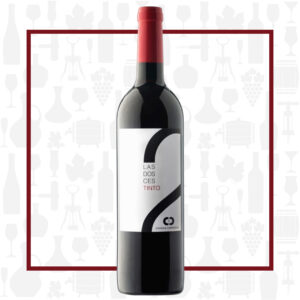Cellar Profile
In 1990, husband and wife team Julin López and María José Peidro purchased an established vineyard in the Requena-Utiel region of Valencia in southeastern Spain. Shortly thereafter, when their extensive studies identified that their terroir was similar to that of many of the French vineyards they frequently visited as a family, they planted several international grape varieties. Today, the Chozas Carrascal vineyard is comprised of 14 plots sitting at 750-840 metres above sea-level on a thick slab of limestone-based subsoil, distinctive within the region. Their climate is significantly more continental than the rest of the D.O.P., with hot, dry summer days and cool, fresh nights. The winery’s uniqueness was recognized in 2012 when it was awarded ‘Vino de Pago’ status, meaning the winery is its own D.O., separate, distinct and at the top of the Spanish wine hierarchy. To date, there are 21 Vino de Pago properties in the country, each one representing a singular identity that combines the best of tradition and modernity. The 30-hectare vineyard at Chozas Carrascal is planted with 12 grape varieties split between local, indigenous grapes—Bobal, Monastery, Garnacha, Tempranillo and Macabeo—and widely-recognized French examples: Cabernet Sauvignon, Cabernet Franc, Merlot, Syrah, Chardonnay, Viognier and Sauvignon Blanc. These vineyards are farmed and certified organic and the wines exhibit elegant structure, intense, complex character and, most importantly, delicious drinkability.
Region
Chozas Carrascal is located in Valencia, in Spain’s Mediterranean east. A number of factors combine to create the special conditions at this estate. The property sits at 700m above sea level, approximately 40 miles (65 km) from the coast. Despite its proximity to the sea, the climate is decidedly continental, making for hot summers, cold winters and large diurnal temperature variations. The estate’s dry setting is somewhat offset by its limestone-rich soils, which importantly retain moisture. DO Utiel-Requena produces mostly red wines and nearly 95% of the vineyards are planted with red grape varieties.
Vineyard
Chozas Carrascal has been daring in its viticulture approach, planting its vines at a density of 1,335/acre (3,300/ha), far denser than any vineyards nearby. This forces vines to compete for water and nutrients and drives yields down. The vineyards grow on a slight slope. Sunlight, cool coastal breezes and loamy, chalky soil all contribute to the quality of the wines produced.
Varieties
Bobal is a dark-skinned wine grape variety native to Utiel-Requena. Thick skins, late budding and drought-resistance have made it well-suited to the dry, continental landscape where it makes its home. This under-the-radar grape is the 2nd most planted red wine in Spain (behind Tempranillo). Bobal wines are loved for their fruity flavors, soft tannins and velvety finish.
Winemaking
Hand-harvested and de-stemmed grapes are fermented in concrete tanks. Gentle pumpovers are done three times a day to extract colour during fermentation. The fermentation begins with full oxygen, but the concrete eggs are sealed to oxygen during the final stages. The wine sees no oak before being bottled.
Tasting Notes
Bobal can be quite “rustic” at times, but Chozas Carrascal has managed to craft a supremely elegant example here. A fruit-driven nose of black plum, strawberry and anise. The palate is medium-bodied with subtle tannins and fresh acidity. The plum replays here, along with black cherry, tobacco and red pepper. This is best served with a light chill and enjoyed with backyard BBQ.

 info@buyersandcellars.ca
www.buyersandcellars.ca
info@buyersandcellars.ca
www.buyersandcellars.ca